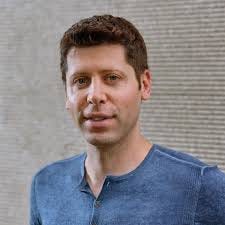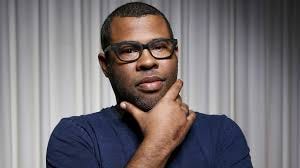How to break through creative barriers: Sam Altman + Jordan Peele (#86)
Peele's advice for someone blocked; Altman's "underrated" advice from Paul Graham
“Energy and persistence conquer all things,” said Benjamin Franklin.
In a recent interview at Harvard Business School, Open AI CEO, Sam Altman, addressed the persistence part, in what he calls “one of the most important life skills.”
Six years prior and 200 miles south, Jordan Peele’s advice hit the energy part. In his “advice to any writer that’s blocked,” he talks about what allowed him to write Get Out.
Altman and Peele offer two ways around the same, hard problem.
Let’s get it.
Sam Altman: Relentless Resourcefulness
Chung asked Altman to discuss the qualities he feels are critical to startup success.
Paul Graham had given him advice, he said, that “never became as venerated advice as it should have.” To become ‘relentlessly resourceful.’
An example from the early days of OpenAI:"
We needed to figure out how to get a deal with a mobile operator. We probably tried 30 different paths into this company…At one point the key decision maker said 'I'm finally. going to meet with you so you stops bothering us.
Altman summarized the advice as follows:
You should try to be relentlessly resourceful.
Surprisingly often, if you just keep looking for new attack vectors for a problem in front of you, you can figure it out.
…I think this is one of the more important skills in life and it's surprisingly learnable... and it works in almost all scenarios.
Most people stop after the first or second non response…
They give up too early. Here’s what they fail to understand:
You can keep trying until it works.1
Jordan Peele: Fun Works
In 2009, Jordan Peele was cobbling together random scenes that would eventually become Get Out.
But the movie didn’t get made for another eight years.
What he realized was that he was getting too critical, too early. "I can't worry about this movie ever being made,” Peele said. “I have to write my favorite movie that doesn't exist."
For the next five years, Peele toyed with this movie in his spare time.
It wasn't like I was [typing] every night for five years. I allowed it to be my hobby…The whole purpose of it was for me to get better as a writer...
I know this from Key & Peele--when you're having fun…
Fun works.
Here, Peele’s advice seems to dovetail with Altman’s—to have a long time horizon.
I wasn't on a clock... I could push a little, have some fun, I could come back a day later, and have what I was working on teach me what it was…
I had no time limit.
But during that time, you have to enjoy the process; to love what’s coming out.
Peele said the key to Get Out just that. Yes, he had studied movies, learned how to write, and done the work to get good. But it was really about a simple feeling when writing. The feeling of enjoyment.
If you're not having fun writing, you're doing it wrong. Shift up your tactics…
The simple stupid sketch you just cracked yourself up on will work.... The process of having fun doing the work is visible to an audience.
That's my advice to any writer dealing with writers block: follow the fun.
The OGT: Fun, Relentlessly
It’s hard to be resourceful without having fun.
It’s also hard to keep doing anything for a long time if you don’t enjoy what you’re doing. Relentlessly resourceful is a high bar, and to me, it seems even higher when you’re trying to muscle it.
I think that’s Altman’s and Peele’s and Warren Buffett’s and Jeff Bezos’ and Sebastian Maniscalco’s and Sarah Blakely’s competitive advantages. They actually like what they are doing. It’s much easier to be relentless when you want to be doing exactly what you’re doing.
Show me an athlete who likes to practice, a comedian who enjoys sitting at a desk and writing jokes, an entrepreneur who loves her product—show me people having fun—and I’ll show you people who are relentlessly resourceful.
He did say that the question he gets after that advice is, “how do I know when to give up? His answer: “There's no rubric.” My sense is that giving up is the much bigger problem, so I don’t worry that much about staying too long. However, if you want more on “when to give up”— check Seth Godin’s advice on when to quit.





